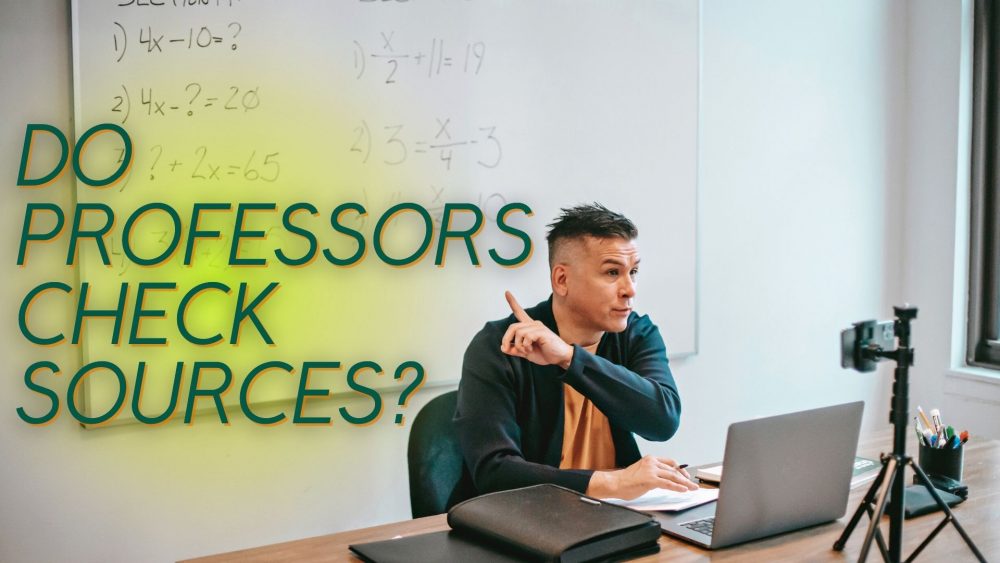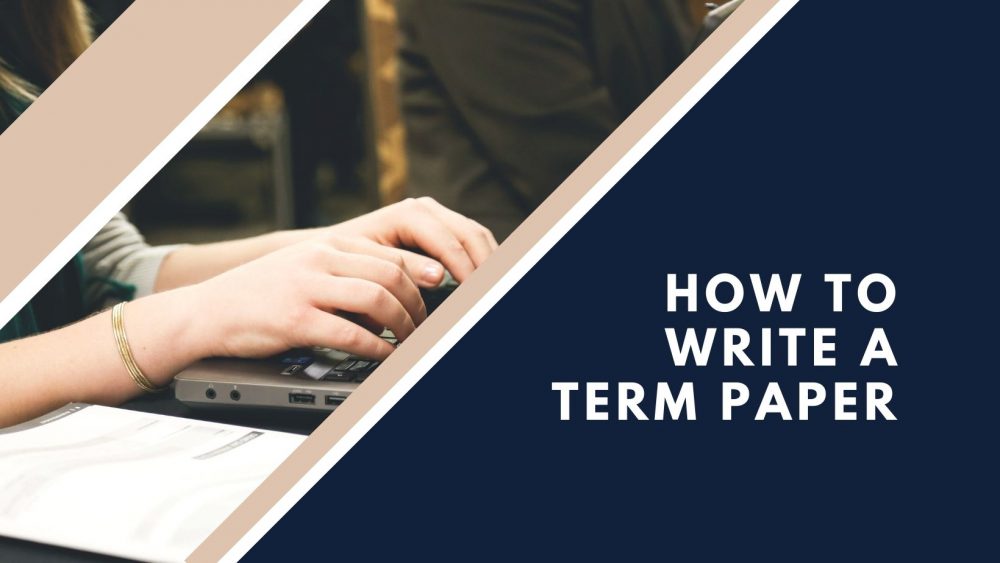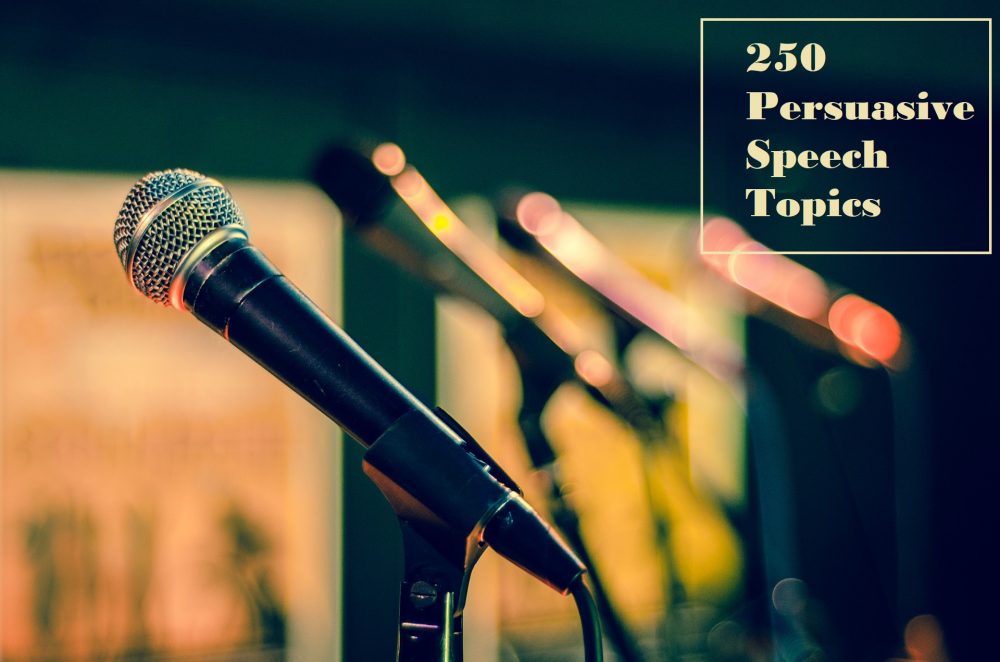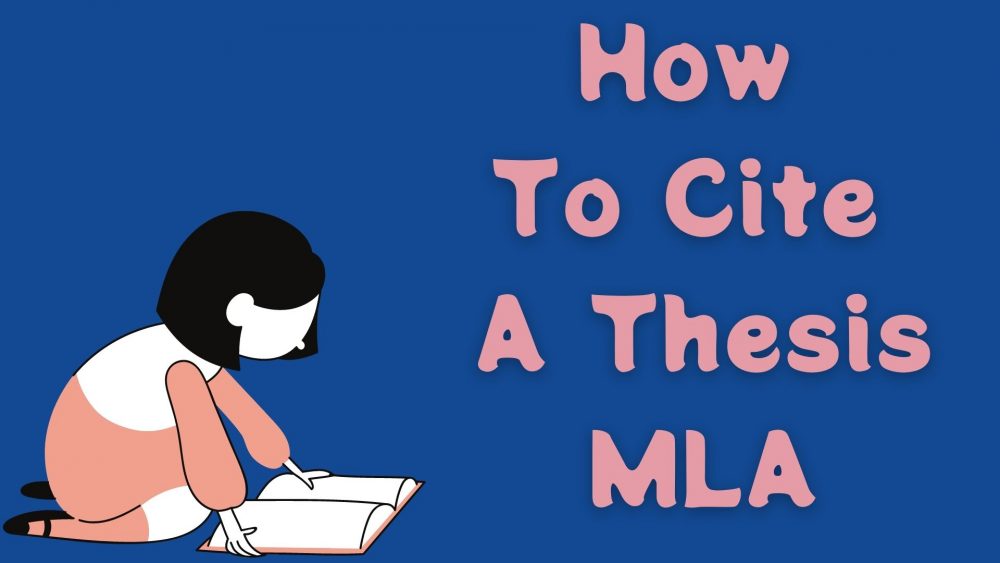Do professors check sources? How? These are two of the most common questions we receive from students every week. It looks like students are interested to find out if their professors are actually checking their sources. And if they do, you probably want to know how they do it. This blog post will attempt to answer all of your questions.
In addition, we will talk about how professors check sources and how they check your essays and research papers for plagiarism. Finally, we will show you the difference between the various types of sources and the best way to find each one. And remember, our experts are just one message away if you have any questions or need any help with one of your papers.
Table of Contents
Do College Professors Check For Plagiarism?
We will start by talking about plagiarism. As you know, plagiarism is a very serious offense in the academic world. There have even been students who have been expelled because of plagiarism. In any case, plagiarizing someone else’s work will get you penalized very severely. You professor may even choose to reject your paper.
But do college professors check for plagiarism?
Yes, all professors check their students’ papers for plagiarism – or at least should check them. Nowadays, it’s easy to scan an essay for plagiarized content.
There are many tools that do it automatically and many of them are free. Your professor can get all of the following information with just a few mouse clicks:
- The percentage of plagiarism found in your paper
- The sources from where the content was copied
- The words and sentences that were copied
- Warnings regarding possibly altered text (text you have attempted to rewrite and pass as you own)
- Matches from the professor’s private library (if you attempt to copy from your classmates or from previously submitted papers)
Plagiarism is not tolerated, so you should not attempt it. If you need to use something in your paper, use citations and quotes. However, make sure you keep them well below 10% of the total amount of text.
OK, So How Do Professors Check Sources?
But how do professors check sources? Maybe I can get away with including some ambiguous ones! First of all, you should not attempt to use information from unreliable sources. We do agree that your professor may not have the time to check each and every source you list in the Works Cited section. However, keep in mind that some professors really do check all the sources.
Back to your question: how do professors check your sources? Well, there are several ways to do it. Here is what most professors will do or at least agree with:
- If the student is writing in an area the professor knows, it’s easy for the professor to figure out if the reference makes sense or not.
- Often, your professor will figure it out quite easily if you try to make things up. It’s also relatively easy to find students who are copying parts of other papers.
- Nonsense and inconsistent language are two other things that will signal your professor that your references are not exactly reliable.
To our knowledge, there is no automated way of checking sources in an essay or research paper. However, schools have been working on software that enables professors to check more than just plagiarism.
But do professors check sources for annotated bibliography? Yes, most professors for check sources for annotated bibliographies. In fact, a sure way to irritate your professor is to forget to include a source you’ve used or cited in the Works Cited section. Make sure you double-check your paper after you write it. This way, you can avoid losing a lot of points for minor mistakes that could have been fixed in just 2 minutes.
Good Sources And Bad Sources
Do professors actually check sources? We have already established that most professors check all the sources in their student’s papers. Some professors check only sources they consider to be suspicious. In any case, you should not attempt to use sources that do not exist or base your writing on unreliable sources.
To make sure you don’t make this mistake, we will talk about the two most important types of sources. These sources are primary and secondary sources. Remember, you should always do your best to base your writing only on these two kinds of sources. The third kind, tertiary sources, is generally considered unreliable (this means you can get penalized for using them). Below, you will find everything you need to know about primary and secondary sources.
Primary Sources
Primary sources are the first-hand accounts of a topic. They usually come from people who were part of the topic or who witnessed it.
To understand better, we’ll give you an example. If while working on your dissertation you discover something new, your dissertation will be a primary source. Keep in mind that primary sources present information for the first time. They can also be original materials such as photographs, audio recordings and movies. In certain situations, even works of literature can be considered primary sources. Here are some examples to make things even clearer:
- Speeches
- Letters
- Correspondence
- Theses
- Dissertations
- Photos
- Government reports
- Clinical reports
- Case studies
- Diaries
- Manuscripts
- Interviews
- Journal articles
- And many more
It goes without saying that you should try to use as many primary sources as possible in your essay or research paper. However, all professors should agree that this is not always possible. This is why you have the chance to use secondary sources (which are much easier to find).
Secondary Sources
Secondary sources are based on primary sources, but they introduce something new – either analysis or interpretation.
In other words, a secondary source discusses a primary source in an original manner. For example, a book on locusts would usually be a secondary source. The primary source would be the person who first discovered that species of locus or the botanists who analyzed the locusts for the first time. To make sure you don’t get it wrong, we will list the most common secondary sources to date:
- Documentaries
- Books
- Data interpretations
- Journal articles that analyze research
- Newspaper editorials
- Textbooks
- Magazines
- Handbooks
- Biography of historical figures
- Blog posts that analyze something
- A literature review
- Articles about various subjects
Even though they are not as authoritative as primary sources, secondary sources are widely accepted by the academic community. However, you should make sure that your sources are peer-reviewed in case you are writing a research paper. Why? Because they have been reviewed by an independent panel of researchers, so they carry a lot more weight.
How Do You Find Reliable Sources?
Most students ask us where they can find reliable sources for their essays and research papers. Truth be told, there are a lot of places where you can find primary and secondary sources. However, you need to be able to make the difference between primary, secondary and tertiary sources. If you are ever in any doubt, don’t hesitate to read our description of the two most important types of sources again. Your source may be in one of our examples.
To find a good primary source nowadays, one doesn’t need more than an Internet connection. You can find almost anything on the Internet these days. In most cases, you will find secondary sources (sources that are interpreting or analyzing a primary source). However, most secondary sources list their primary sources in the references or works cited section. This means you can find them as well.
Another easy way to find sources is to get subscriptions to academic magazines and libraries. Primary sources are often published there first and are usually reviewed by peers. Now, we know that subscriptions are not cheap and that students are often struggling to make ends meet every month. This is why we recommend you to get in touch with one of our academic writing experts and ask for some help with your paper. Our experts have subscriptions to the most important academic publications and libraries on the Web, so they can quickly find a few excellent sources for you.
Popular Questions About Professors Checking Sources
After all the tips and hacks we’ve talked about, we are certain you have some questions on your mind. After all, the various types of sources and the process of finding them are not easy to understand. Below, our research writing service writers will try to answer the most popular questions we receive from students. If you can’t find the answer to your question, don’t hesitate to send the question to one of our experts.
Q: How do professors check peer reviewed sources?
A: While there is no automated way of checking whether a source is or is not peer reviewed, your professor will try to make sure your source is an article published in a peer-reviewed journal. This can be easily achieved online.
Q: Do professors check citations?
A: Of course, you can be almost certain that your professor will check your citations. This is why you should never cite something that you did not include in the References or Works Cited section.
Q: Is using professors as references OK?
A: There is a bit of a debate about listing professors as references. However, you can safely use a professor as a reference if he or she is an expert in his or her field. It also helps if the professor has published articles under his own name and not the school’s name.
Q: What is a tertiary source?
A: Generally speaking, a tertiary source is a source that digests primary and secondary sources. It can simply repackage the information or it can compile, abstract or index other sources. For example, Wikipedia is a tertiary source – and so are bibliographies, almanacs, handbooks, guidebooks, dictionaries, and encyclopedias.
Q: Do I need to list all sources in the Works Cited section?
A: Yes, you should include all your sources in the References or Works Cited. This is important in case of a professor check. If he finds sources that you have used in your essay but have not included in the references section, you can get penalized.
Q: Do you have a cheat sheet for finding great sources?
A: We have explained what primary and secondary sources are. However, if you need more information about finding the best sources on the Internet or offline, you should get in touch with one of our experienced academic writers.
Get Professional Writing Help
Don’t know how to find good references for your essay or research paper? Our assignment writing service is exactly what you need. You can get top quality professional writing help from our experienced academic writers in no time. Also, we can help you with professional editing and proofreading services that will ensure your paper is perfect in every way.
Over the years, we have helped thousands of college and university students with their papers. Whenever they had the concert “Can you do my thesis for me?” we listened and did. Every professor has appreciated our custom academic content and we can assure you that your essay will be ready on time no matter what. We work fast and cheap, so you don’t have to worry about money too much. Get in touch with us and don’t forget to ask us about our current offers and discounts!












